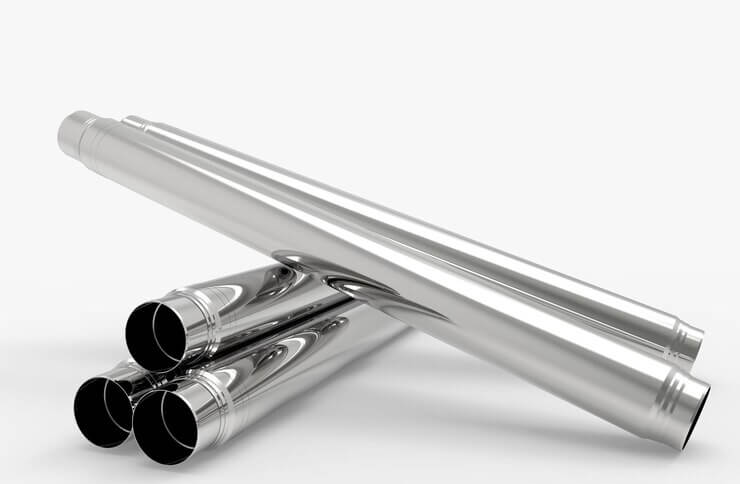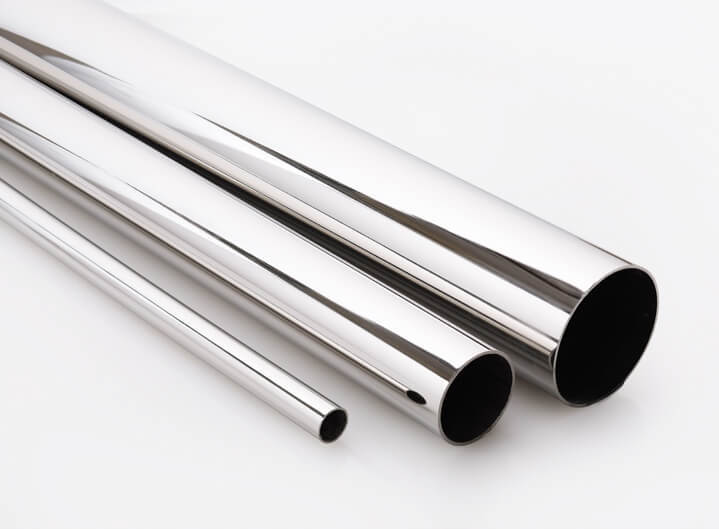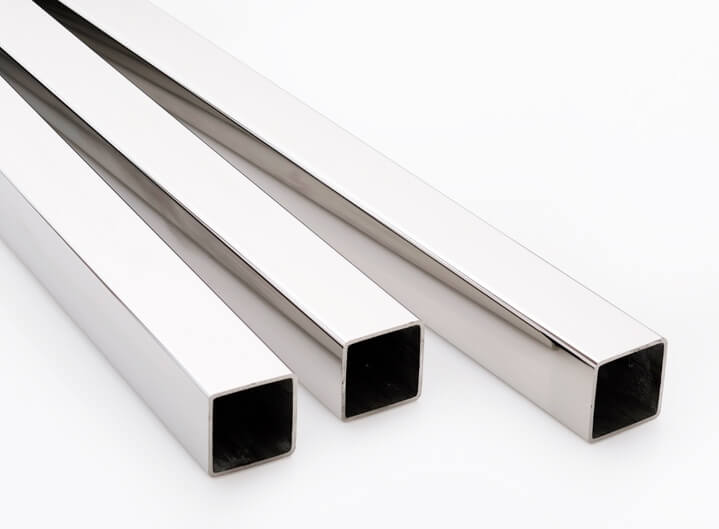316L stainless steel round pipes are a favorite for industries that need tough rust protection, durability and reliability in rough spots. The low carbon in 316L makes it super easy to weld. It also cuts the odds of carbide buildup. That’s a big deal for clean places like food factories or medicine plants. With less carbon, 316L pipes are simple to shape and weld. They keep performing well, even in crazy tough conditions.
These pipes have a slick surface. You can also get them electro-polished, which makes cleaning and keeping them germ-free a breeze. That’s why 316L is perfect for clean-in-place (CIP) and steam-in-place (SIP) systems. You’ll find these in super clean environments.
Built from Grade 316L stainless steel, these pipes fight off pitting, crevice corrosion and chemical wear. This keeps them solid over the long haul. The molybdenum in the steel helps it tackle chlorides and acidic stuff. It’s especially great in marine spots or chemical plants where rust is a real problem.
With its rugged features, 316L stainless steel pops up in tons of industries, like:
-Medicine factories
-Food and drink production
-Marine engineering
-Chemical plants
-Oil and gas pipelines
It’s also used to make weapons, gun barrels and artillery shells. Plus, it’s a go-to for parts where you want less weight but still need strength.

Solid suppliers let you track their materials with heat numbers and batch records. Certifications like ASTM A554 or ISO standards show the materials meet strict global rules. Every shipment comes with mill test certificates. These lay out the chemical makeup and strength details plain and simple.
Suppliers should follow big-name standards like ASTM A554 for welded tubes or ASTM A312 for seamless pipes. These certifications mean the material’s been tested right.
MTRs are super important papers. They prove a product hits the right specs. They list stuff like chemical makeup, tensile strength, yield strength and stretch rate. This makes sure you get exactly what your project needs.
Being open builds trust. Suppliers who share how they make their stuff—from raw materials to final checks—are more likely to give you solid quality. Look for ones who test welds with eddy current methods or check strength with hydrostatic pressure tests.
Experience makes a difference when picking a supplier. Companies with years of making stainless steel usually have their process down pat. This leads to great products. Check out reviews from past clients or project examples to see how dependable they are.
A good supplier has experts who can help you pick the right product. They can guide you on stuff like pipe thickness or dealing with harsh chemicals.
Suppliers need to jump on issues fast. Whether it’s fixing a quality problem or making custom sizes for one-of-a-kind projects, quick action keeps your project on schedule.
Good shipping plans mean materials show up when you need them. Check if the supplier keeps enough stock of standard sizes. Also, see if they can rush orders when you’re in a bind.

At YUHUA, we focus on top-notch stainless steel products for tough industrial jobs. Foshan Nanhai YUHUA Hardware Products Co., Ltd. is based in Muyuan Industrial Zone, Shishan Town, Nanhai District, Foshan City. We put a lot of care into making our products. This ensures every pipe size is right on the mark.
Our Premium Stainless Steel Seamless Pipes – 316L/430 Grade have extra chromium. This helps them fight rust, even in high-pressure places like marine or chemical systems.
We offer electro-polished finishes. These are awesome for places where cleanliness is everything, like food-grade pipes or medicine transport lines.
We check quality at every step, from raw materials to final packing. This makes sure every batch is just as good as the last.
Our pipes meet certifications like ASTM A554 or others based on what clients need. Every order comes with detailed MTRs so you can track everything.
Custom options are a big deal for special projects. Ask if the supplier can make odd sizes, thicknesses or lengths to match your plans.
For industries like medicine or food production, pipes need to handle high-temperature steam cleaning. They should stay strong over time.
Pick suppliers who know your industry’s challenges. Whether it’s handling harsh chemicals in oil and gas or keeping things sterile in biotech labs, they should meet both rules and practical needs.

Q: How’s 316L different from regular 316 stainless steel?
A: The “L” stands for less carbon. This makes welding easier by cutting down on carbide buildup during the process.
Q: Can YUHUA’s pipes work in marine settings?
A: Yup. They resist pitting, crevice corrosion and chemical damage. That makes them great for marine use.
Q: Do you include MTRs with every order?
A: You bet. YUHUA provides full material test reports with each shipment. This keeps quality details crystal clear.
Q: Are your products certified?
A: For sure. Our products meet global standards like ASTM A554, depending on what clients need.